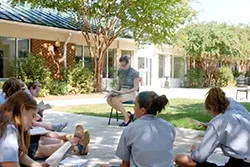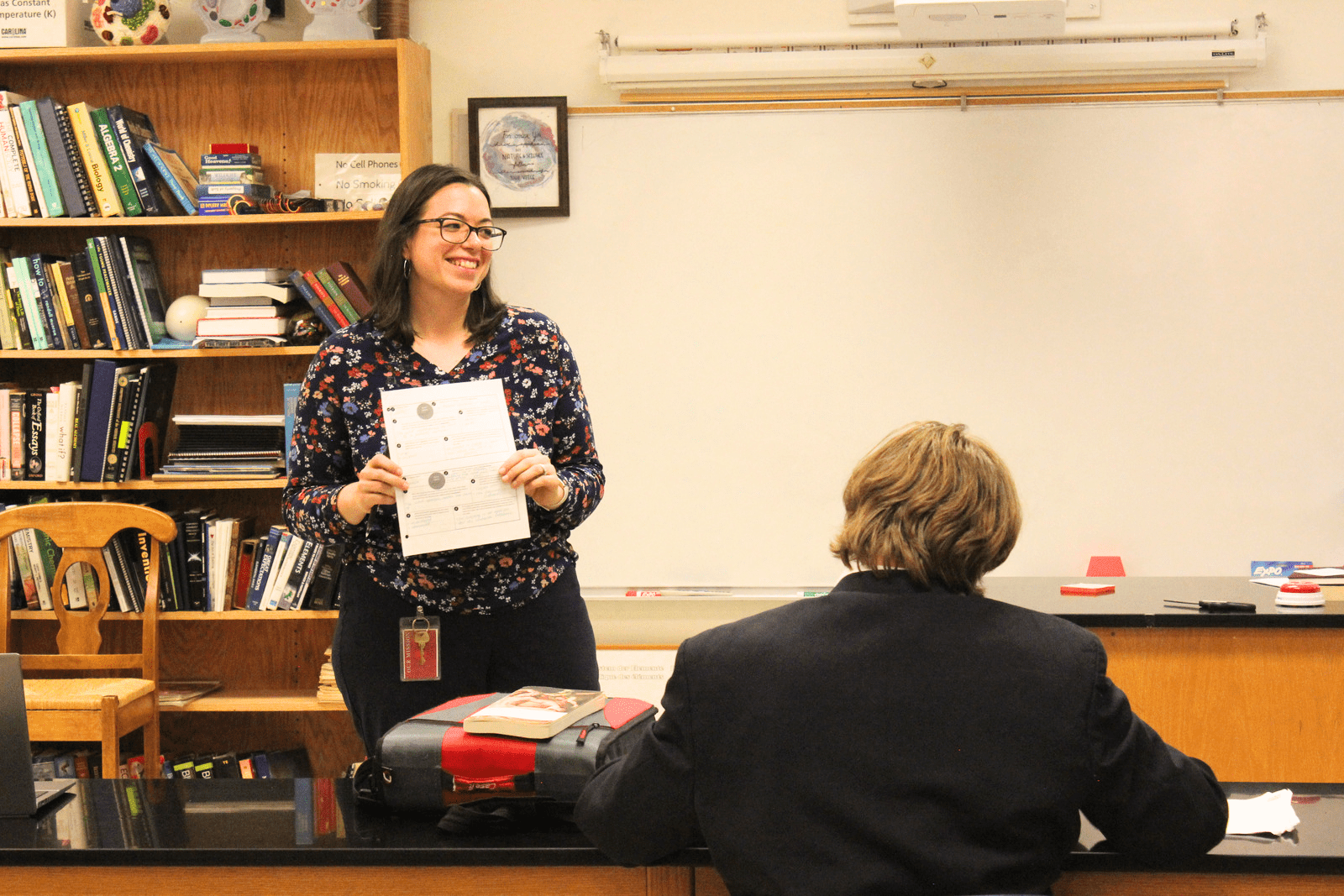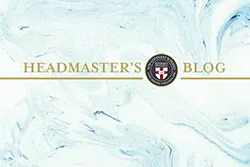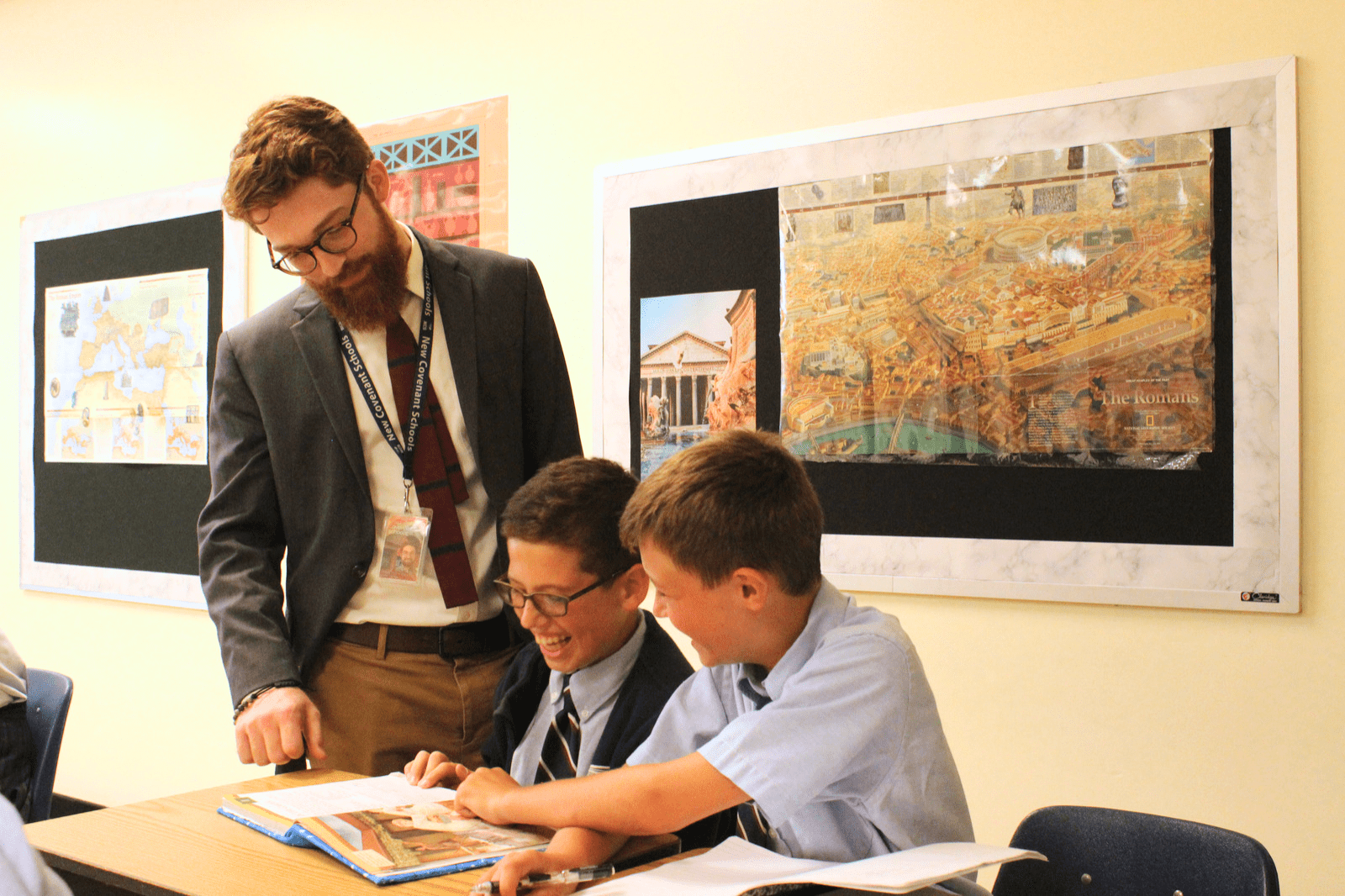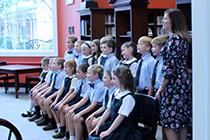While the New Covenant curriculum includes many unique features spanning the grades, the most notable is the senior thesis project. The classical, Christian program of study is designed to develop a student’s facility in the written and spoken word, a process which begins in the earliest years of kindergarten and grammar school.
The first step in developing writers and speakers is to quicken their minds by training the memory. Students memorize banks of information that include poems, fables, historical facts, Scripture, and historic speeches. These are routinely chanted together in the “white spaces” of a typical school day, or as recitations at the beginning of a class. The process in the early years is built thoroughly so as to overcome stage fright before it even takes hold, as it does for so many of us. Surveys show that of all things American adults fear the most, speaking in front of a group ranks near the top. Not so with New Covenant students. From the earliest years, our students stand in front of their classes in a variety of contexts, presenting publicly and continuously. Before they leave grammar school, they already possess a confidence in public speaking that most adults would envy.
The second step in developing writers and speakers is to begin writing early and often. When I conduct tours of prospective parents, student writing is usually on full display in the hallways. When I break the news to guests that the full-page manuscripts they are encountering are the work of second graders, I am often met with slack jaws of disbelief. At this level the writing may be simple copy work emphasizing penmanship, but because writing is taught to a standard, the difference between students is negligible—they are nearly identical in letter formation—nearly indistinguishable.
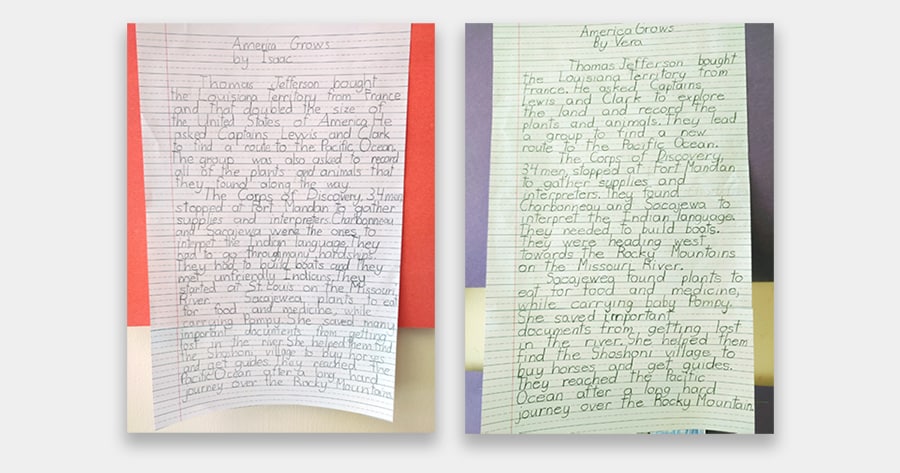
By the time students begin middle school, they have not only learned to read with comprehension, but they have also begun to explore the components necessary to write a credible plot summary, a skill that is essential to writing a full book report. Students are regularly required to write about their reading in structured ways, culminating in a research paper produced in 8th grade. Each step of the project is supported with specific rubrics designed to “scaffold” the students and develop writing habits that they will take forward into high school. The writing projects are also accompanied by oral presentations, which students make with the support of their own written note cards. Again, the cure to stage fright is repetition and the presence of content at the fingertips. Confidence in speaking begins with a message to deliver! Written reports across the curriculum, from English to Science, are not the only venues in which students can test their abilities. By late middle school, even formal assessments will have a writing component that requires students to express themselves clearly.
Finally, as students enter the high school years they begin the study of rhetoric, which builds upon the classical models of writing which students have learned in earlier grades. Under the guidance and expertise of their instructors they work systematically through the five canons (rules) of rhetoric. This begins with Invention, the process of conceiving material for exposition or argument. As youngsters they were reciting material from others. Now they must form their own thoughts. In the senior thesis project, students must choose a debatable topic, research the matter, and “invent” the arguments that they will use to defend a point of view. This part of the process occupies students through the fall of the senior year and culminates in a first draft.
The next rhetorical canon or rule is that of Arrangement, the process of ordering material in a coherent manner, observing sequence and structure. Understanding a topic thoroughly enough to sustain a lengthy argument requires writing skill which, outside of classical schooling, most students are never asked to develop. They must learn which kinds of evidence can be used to support a particular claim, and Arrangement helps them order their thinking logically and persuasively.
The third rule is that of Elocution or Style. This pertains to the vocabulary, metaphors, comparisons, and conventions that express their thoughts. It is style that often determines a writer or speaker’s effectiveness in making a point in the written and spoken word.
The fourth rule is that of Memory, the practice of committing one’s thoughts substantially to memory, so that in presentation they are fluid and practiced. After more than a decade of training in the habits of memory, knowing the major features of a senior thesis by heart comes rather naturally to our high school seniors.
The final step in the rhetorical process is that of Delivery, the moment in which students take the platform and present their ideas. The writing and speaking process at New Covenant is comprehensive and central to the program. Its most unique and abiding feature is the senior thesis, the capstone project of the New Covenant career, in which students research, write and present a significant paper on a debatable topic, usually involving what we refer to as a “great question.”
This week the high school schedule will pause for two “Thesis Days” as our seniors take turns presenting before their advisors, faculty members, parents and peers. We invite you to examine the thesis titles in the March 28, 2022 issue of the . Most importantly, we urge you to a greater appreciation for classical education, in which students become eloquent in the written and spoken word.









